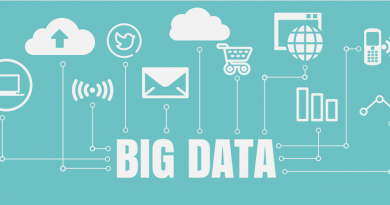Using Big Data to Increase Productivity and Profitability
The use of electronic data has been on a steady uptick in recent decades as more and more people turn to communication and information storage via the Internet. Any IT company, as with any business seeking to remain relevant as time goes on, will undoubtedly see the value in accessing the vast sources of information submitted by ordinary people. Those who are in IT management will have to learn how to deal with the torrents of information coming from social media, user-generated multimedia, and the bulk of the Internet that steadily grows the more people submit data to it.
Despite the area of focus for any institution, big data is essential to how they operate and how they manage cost. Any company could utilize big data relevant to their existing or prospective clients to reduce man hours to a more efficient level, focusing only on the points that relate to particular clients. Managed IT services that are contracted for public services by governments can take advantage of big data, too. Using gathered information on road use and healthcare could increase efficiency and quality of construction and treatment for the betterment of the general public and a reduction in cost. In addition to perfecting existing services and publicly accessible roads and places through proper IT management, the elimination of fraud, human error, and bureaucratic oversight become a more tangible concept that can eventually be reached.
 Data collection and utilization is a common part of business in most of the developed world. The reason for this is the inherent value attached with its use. Data not only becomes more accessible through use of big data, the ability to collect and store the data also becomes simpler to any institution. Something as simple as tracking the habits of employees when it comes to taking personal leaves from work to the practices of industry suppliers provides an opportunity to craft strategies and practices that works within rules that have only begun to surface. This is especially true when considering the needs and wants of clients. In this scenario, big data can construct the beginnings of a plan of action for managed IT services to know how to appeal to those that would hire them.
Data collection and utilization is a common part of business in most of the developed world. The reason for this is the inherent value attached with its use. Data not only becomes more accessible through use of big data, the ability to collect and store the data also becomes simpler to any institution. Something as simple as tracking the habits of employees when it comes to taking personal leaves from work to the practices of industry suppliers provides an opportunity to craft strategies and practices that works within rules that have only begun to surface. This is especially true when considering the needs and wants of clients. In this scenario, big data can construct the beginnings of a plan of action for managed IT services to know how to appeal to those that would hire them.
Another promise–and at times challenge–that big data presents has to do with competition. Despite a particular company’s view on the use of collected general data, it is an undeniable fact that competitors will put such information to use to remain relevant in any given field. It’s well known the opportunity for innovation and strategy provided by data to remain relevant with up-to-date information. An IT company has the most to gain from this.
There are still issues surrounding the actual collection and application of this acquired data. There are policies in many countries and practices by companies that make this murky waters to venture through. There are also fears by many as to what is being collected in big data. Companies and institutions need to offer incentives and assurances that the information collected is for the betterment of a service and its organization in order to best cater to their clientele. And it is through those assurances and sound practices that offers the best data to benefit all involved.


